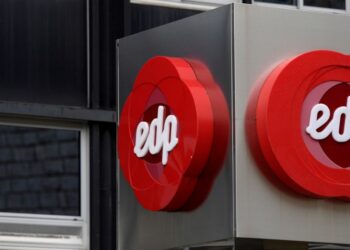Equinor optimizes its portfolio in the United States. As a result, it is recording increased profits while reducing its CO2 emissions. In a context of energy transition, the company must succeed in adapting to both the demands of stock market profitability and the development of low-carbon energy.
Equinor confirms its earnings in the United States
Equinor must combine low-carbon production with good profitability. As a result, the company’s optimized upstream portfolio in the U.S. today provides some of the company’s highest value-added production with some of the lowest carbon levels.
The United States is Equinor’s largest source of production outside of Norway. The country currently accounts for more than 50% of Equinor’s international upstream portfolio profits.
New projects support the high production and profitability of the US offshore portfolio.
The refocused onshore portfolio positions Equinor for potential new low-carbon value chains.
In the first half of 2022, U.S. oil and gas production was 332,000 boepd, 18 percent lower than in the first half of 2021 following the sale of the Bakken assets.
However, despite the decline in production, net operating income increased to $2.2 billion. That is, more than six times higher than in the first half of 2021.
Chris Golden, US country manager and vice president, is pleased with this:
“After a repositioning, I am pleased to see that our portfolio is returning record cash flows to the company.”
Two new projects in the Gulf of Mexico
The two projects in the Gulf of Mexico reflect both Equinor’s desire to find new market opportunities and its commitment to developing low-carbon production.
In addition to the good image gained in the process, the economic interest is essential. New markets mean new profits.
With nine deepwater fields producing approximately 115,000 boepd, Equinor is one of the major players in the Gulf of Mexico.
According to C. Golden:
“[Ces projets] guarantee a solid and continuous cash flow over the course of the decade.”
Equinor holds a 36.9% interest in the Shell-operated Vito project, which is scheduled to begin production in 2023.
In June, Equinor agreed to transfer 51% ownership and operation of the Sparta project to Shell. Equinor still retains 49% as a partner.
Mr. Golden states:
“Sparta and Vito are valuable projects that should add significant value with low carbon intensity.”
The development of low-carbon production
Equinor is consolidating its low-carbon production activities as in the Appalachian Basin. This asset produces, according to the company, some of the least polluting barrels in the world with 0.6 kg of CO2 in 2021.
The Marcellus non-operated asset is one of the largest gas assets in Equinor’s global portfolio, along with Troll, in terms of clean production. This asset produces approximately 200,000 net boepd for Equinor with low carbon intensity.
Equinor and its partners are looking at several ways to reduce emissions. These include: electrification of drilling rigs and continuous methane monitoring, and responsible gas certification.
In September, Equinor, US Steel and Shell entered into a non-exclusive cooperation agreement to promote a clean energy center. The regions affected are Ohio, West Virginia and Pennsylvania.
This will focus on opportunities for decarbonization through carbon capture, utilization and storage (CCUS). As well as the production and use of hydrogen. This is part of the development of low-carbon production.





